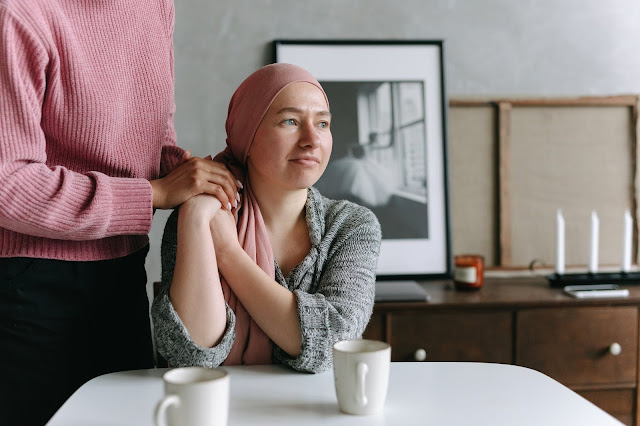Everyone is filled with fear when your doctor tells you that you are suffering from cancer special Leukemia ALM, but if you are someone or your relatives are suffering from Leukemia, here are the hope to those who are suffering from Leukemia cancer
Leukemia is a cancer of the blood or bone marrow. Bone marrow produces blood cells. Leukemia can expand due to a problem with blood cell production. It usually impacts the leukocytes or white blood cells. Leukemia is most probably to have an effect on humans over the age of fifty-five years, however, it is also the most common cancer in those aged under 15 years.
Leukemia treatments may vary according to the type and sub-type that is diagnosed, the phase or stage it is in, and the age and overall health of the patient. best hospitals for leukemia treatments are renowned for their oncology departments and offer a full range of treatment options to meet your needs including, Bone marrow transplants, Chemotherapy, Radiotherapy, Biological therapy, and Stem cell therapy, but supplements become many people's choices.
Scientists at Rice University and the University of Texas MD Anderson Cancer Center have successfully profiled protein pathways found to be distinctive to leukemia patients with particular variants of the disease. Their research involved the creation of a new computational approach to identifying complex networks in protein signaling.
They reported their work this month in the journal Proteomics. With their new method, Rice bioengineer Amina Qutub, MD Anderson clinician and scientist Steven Kornblau, and Rice graduate student Heather York analyzed more than a decade's worth of data. They identified patterns in the expression of 203 proteins studied in cells of acute myeloid leukemia (AML) patients and found nearly 700 protein pairs (from among thousands of possibilities) implicated in such networks.
The goal is to fine-tune therapy for patients, Qutub said. If it's possible to know the protein signaling pathways of particular types of leukemia, then drugs may be found - or designed - to target the disease by blocking those pathways.
"Leukemia is not just one disease," said Qutub, who attended Rice as an undergraduate and is now an assistant professor of bioengineering based at Rice's BioScience Research Collaborative."It's many, many diseases lumped into one category. You can't use a sledgehammer approach to treat it, though that's what clinicians have been doing." "A Phillips head screwdriver does great if you've got a cross on your screw head," Kornblau said
The only way we know to do that is to figure out the protein signature." Proteins are the workhorses of the cell. Created from blueprints stored in DNA, they pass chemical signals from one to another with instructions on just about every activity a cell is capable of. But when their basic coding is scrambled, they can just as easily cause a cell to self-destruct.
Possible treatments
1. Tongkat Ali - Researchers in America and Japan reported that the compound Alkaloids found in Tongkat Ali have the effects of inhibiting the growth of cancer cells in animals and the spread of leukemia.
Tongkat Ali can be found in supplements and it's not harmful to your health if you can take it on your own or at home.
2. Clofarabine - Clofarabine belongs to the group of medicines known as antineoplastics. It is used to treat a type of cancer of the white blood cells called acute lymphoblastic leukemia (ALL) in patients 1 to 21 years of age who have already used at least two other cancer medicines.
Clofarabine interferes with the growth of cancer cells, which are eventually destroyed. Since the growth of normal body cells also may be affected by clofarabine, other effects also occur. Some of these effects may be serious and must be reported to your doctor.
It's very important to talk to your doctor before you can use Clofarabine.
3. Matrine - Matrine, a major component extracted from Sophora flavescens Ait, has been demonstrated to exert anticancer effects on various cancer cell lines. However, the effects of Matrine on AML remain largely unknown.
Matrine, an alkaloid extracted from Sophora flavescens Aif, is quinolizidine with a four-loop and a molecular formula of C15H24N20. Matrine has been found to exhibit many biological activities, such as anti-inflammation, anti-virus, anti-fibrosis, anti-arrhythmia, and immunosuppression, leading to wide clinical use in the treatment of viral hepatitis, liver fibrosis, heart arrhythmia, and skin diseases in China. Recently, intensive studies have shown that Matrine possesses potent antitumor activities by inhibiting proliferation and inducing apoptosis of cells from gastric cancer, lung cancer, hepatocellular carcinoma, breast cancer, melanoma, leukemia, and multiple myeloma.
Consult your doctor before you can start to use Matrine.
Note: Karrel Hamutenya Updated World didn't claim any product recommended above that they can treat ALM cancer, before you can use them consult your doctor



